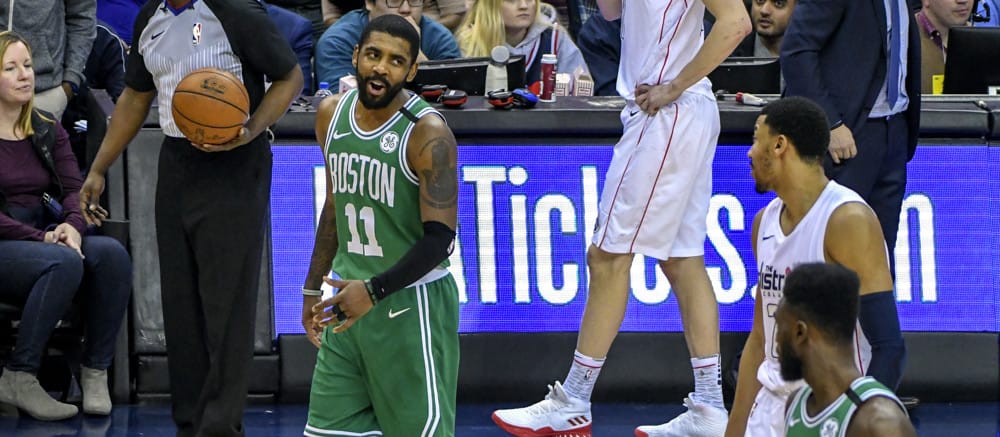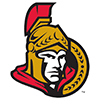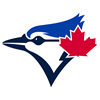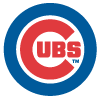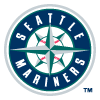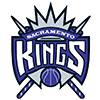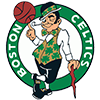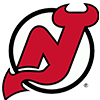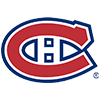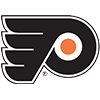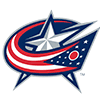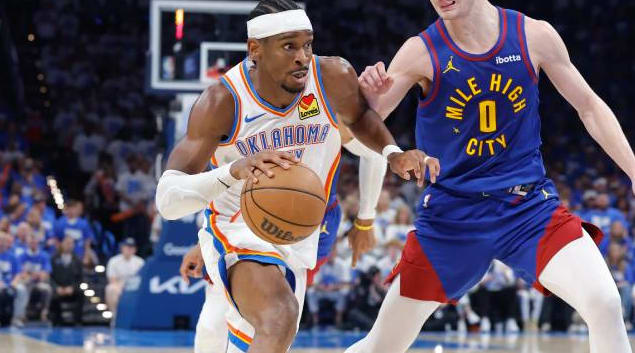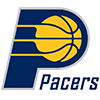 Pacers (48-34), preseason over/under: 48.0
Pacers (48-34), preseason over/under: 48.0
The Good
Despite getting just 36 games out of Victor Oladipo before he suffered a ruptured right quad tendon, the Pacers kept the ship afloat and locked up the five seed. Bojan Bogdanovic played a large part in that, and he ended up leading Indiana in total minutes. He set career highs nearly across the board and finished as a top-65 fantasy asset, which was great for fantasy owners who could often snag him in the final rounds of their drafts. Thaddeus Young was second on the team in minutes played, locking down the power forward spot. A solid all-around year led to him posting top-55 numbers -- strong value for owners considering he was generally ranked outside of the top-100 before the season.
Even though Domantas Sabonis and Myles Turner spent just 461 minutes on the court together (8.5 minutes per game) this season, the pair found a way to exceed their ADPs. Turner didn't do it by much -- about half a round -- but he continued to make improvements and notably led the league in total blocks (199). On the other hand, Sabonis went undrafted in the vast majority of formats, but he ended up returning top-80 value in 74 appearances. The 22-year-old will garner some Sixth Man of the Year votes on the back of 14.1 PPG on 59.0 FG%, 9.3 RPG and 2.9 APG in 24.8 MPG.
The Bad
Losing Oladipo for the final 46 games of the regular season put a severe cap on the ceiling of the Pacers. Even though Indiana finished out the season relatively strong, there wasn't much optimism for them heading into the postseason, and the result was a sweep at the hands of the Celtics.
Aside from Oladipo's injury, the shoddy play of Tyreke Evans was unexpected. He put together a resurgent 2017-18 campaign with the Grizzlies, and the Pacers rewarded him with a one-year, $12 million deal. A sixth-man role seemed to be in store -- someone who could take control of the offense when Oladipo rested. However, Evans took a hard step backward, playing just 20.3 MPG and shooting 38.9 FG% for 10.2 PPG. Fantasy owners felt confident drafting Evans in the 10th round, but he failed to return top-200 value across his 69 appearances.
State of the Franchise
Decisions needs to be made on a variety of expiring contracts: Young, Evans, Bogdanovic, Darren Collison, Cory Joseph, Kyle O'Quinn and Wesley Matthews. Bringing none of them back would only have the Pacers on the books for $60.1 million, which could allow a significant free-agent signing to pair with Oladipo. If the Pacers want to truly compete in the upper echelon of the Eastern Conference, that might be necessary.
However, the overall success of the 2018-19 season without Oladipo might prompt Indiana management to keep pushing forward with a very similar core. Plus, big free agent signings are hard to come by in a small, midwestern market. Either way, it appears the Pacers are here to stay, and we should expect them to be in the playoffs for the foreseeable future.
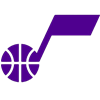 Jazz (50-32), o/u: 50.0
Jazz (50-32), o/u: 50.0
The Good
The Jazz made a two-win improvement over last season, locking up the fifth seed in the Western Conference playoff picture. Much of the team's success can be attributed to a strong defensive identity and health. Utah's defense, led by Rudy Gobert, ranked second in the league, and four players on the Jazz cracked 2,000 minutes. Gobert appeared in all but one game, leading the league in field-goal percentage (66.9). Reaching 80 games is often a tough mark for centers, and the result was a top-20 fantasy finish for Gobert, who reached career highs in points (15.9), rebounds (12.9), assists (2.0) per contest.
Joe Ingles played all 82 games for a third straight season, and he's been one of the NBA's most underrated fantasy assets. While he saw his efficiency take a dip, Ingles still averaged 12.1 PPG, 5.7 APG, 4.0 RPG, 2.3 3P and 1.2 STL across 31.3 MPG. Fantasy owners often drafted him after the sixth round, but he returned top-45 value on the season. Another underrated fantasy asset this season was Derrick Favors. Despite seeing his fewest minutes per game (23.2) since 2011-12, he made small strides in efficiency (58.6 FG%), rebounding (7.4 RPG) and defense (2.1 combined BLK/STL) that allowed him to remain fantasy relevant. He went undrafted in many shallower formats, but Favors returned top-75 value.
The Bad
At least for fantasy owners, Donovan Mitchell's sophomore campaign wasn't as productive as hoped. Last year's Rookie of the Year runner-up, Mitchell was expected to make significant strides across the board after averaging 20.5 PPG on 43.7 FG% and taking the Jazz into the second round of the playoffs. Mitchell did improve, but only modestly. The guard finished as the 28-best fantasy player, but it wasn't enough to justify many owners selecting him in the early-to-mid second round.
Mitchell's backcourt partner, Ricky Rubio, also had an underwhelming campaign. Injuries limited him to just 68 games, but his stats slipped as well. His true shooting percentage dipped from 53.7% to 52.0%, while his points, steals and rebounds per game fell too. Optimistic fantasy owners drafted the 28-year-old in the fifth or sixth round, but Rubio failed to return top-90 value
State of the Franchise
With Gobert locked up through 2020-21 and Mitchell about to enter his third season, the Jazz have the profile of a perennial playoff team. But some changes could be on the way. Rubio's contract is expiring, and his fit with Utah wasn't ideal considering how much Mitchell handled the ball. Dante Exum signed a three-year, $33 million extension last summer, so it appears he might be next in line. That said, he's played only 204 games since he was drafted in 2014 due to persistent injury issues. Utah's frontcourt could change as well, as Favors has a non-guaranteed contract for next season. While he had a strong 2018-19 campaign, his traditional big-man offense isn't the best next to Gobert, who lives in the paint. The Jazz may opt to explore the free agency market for a stretch-four.
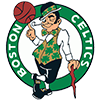 Celtics (49-33), o/u: 59
Celtics (49-33), o/u: 59
The Good
Though Kyrie Irving appeared in only 67 games, he still racked up the second-most minutes on the team. He had an excellent season, finishing just outside of the top-10 in fantasy. He set career highs in assists (6.9) and rebounds (5.0) per game while matching his career-high 1.5 steals per game, making his sixth All-Star team in eight years.
First on the team in total minutes was Jayson Tatum. If there was a "The Neutral" section for these team reviews, I'd throw him in there. But he lands here because he had a solid year, with his fantasy production lining up almost exactly with his ADP. Some owners had quick triggers, taking Tatum as early as the fourth round, hoping for a monster sophomore campaign. His season wasn't that, but he still averaged 15.7 PPG and 1.5 threes on 45.0 FG%, 6.0 RPG, 2.1 APG and a combined 1.8 STL/BLK in 31.1 MPG -- good enough to be ranked as the 50th-best fantasy asset.
A few other players had quality fantasy seasons. Marcus Smart and Marcus Morris were the biggest surprises. Both players often went undrafted, but Smart finished in the top-85, and Morris finished in the top-110. Al Horford played up to expectations, though appearing in only 68 games hurt his cause. Either way, he finished as a top-45 player, setting a career high in free-throw percentage (82.1).
The Bad
There was a frenzy of optimism surrounding the Celtics after going to the Conference Finals in 2017-18 with a depleted roster. Things didn't go as smoothly as hoped, however. The integration of Irving and Gordon Hayward into the rotations seemed to cause some chemistry problems, and Boston ended up winning about 10 fewer games than expected. It became quickly apparent that Hayward was not ready to jump back into a major role. He finished the year with the second-lowest scoring average of his career (11.5) while seeing only 25.9 MPG. Fantasy owners knew the risks, but Hayward's upside led to him being a common pick somewhere between rounds five and seven. What owners got in return was value outside of the top-100.
There wasn't going to be any shock when guys like Jaylen Brown and Terry Rozier sacrificed roles -- Irving and Hayward are better players. Still, it was difficult for fantasy owners to stay away. Why not take a gamble on Brown or Rozier in late rounds? We know they're capable players. Those who selected Brown or Rozier couldn't have been pleased with the results, though, as both players finished outside of the top-140, only having relevance in deeper formats.
State of the Franchise
The big question looming over the Celtics, and the NBA, is Irving's free agency. He has a player option for 2019-20, which he will almost certainly decline. Signs are pointing to him leaving, but do the Celtics even want him back in the first place? If Irving goes elsewhere, that could prompt Al Horford, who has a $30.1 million player option next year, to consider a change of scenery as well. That would leave the Celtics with plenty of cap space and what should still be considered a promising young core. Hayward is on the books for $32.7 million next year, which is far from ideal, but it's within the realm of possibility that he reverts back to his Utah days.
There's a strong chance the Celtics take a bit of a step back in 2019-20. Maybe it will lead to something better in the future. Whatever happens, this summer will mark a turning point for the franchise.
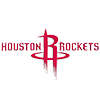 Rockets (53-29), o/u: 56.5
Rockets (53-29), o/u: 56.5
The Good
The Rockets started off slow, but ended up losing only 15 games from Dec. 11 onward, locking up the four seed in the Western Conference Playoffs. James Harden put together another MVP-caliber year, and he finished as the best player in fantasy. He was second in the NBA in total minutes and led the league in scoring with 36.1 PPG on 44.2 FG%, plus 7.5 APG, 6.6 RPG, 4.8 3P and 2.0 STL. He carried many otherwise-subpar fantasy squads into the postseason.
After Harden, P.J. Tucker was second on the Rockets in total minutes, functioning as a glue-guy at forward and some small-ball center. He went undrafted in almost every league, but ended up returning top-75 value by playing 2,802 minutes and posting 7.3 PPG, 5.8 RPG, 1.8 3P and a combined 2.1 STL/BLK. Though Clint Capela played only 67 games, he still returned top-45 value, which was close to his ADP. He set career highs nearly across the board, averaging 16.6 PPG on 64.8 FG%, 12.7 RPG, 1.5 BLK and 1.4 AST.
The Bad
Since Harden joined the Rockets in 2012-13, Houston is averaging 52.7 wins per season. But the Rockets have never been able to make it to the Finals during this seven-year stretch, and have made the conference Finals just twice. It's hard to criticize the organization too much considering the Warriors -- one of the best teams ever assembled -- is often on the other side of the matchup. However, the cumulative effect of the losses despite the presence of a perennial MVP candidate starts to build after a while, and pessimism about this team is probably at an all-time high.
From a fantasy perspective, Chris Paul and Eric Gordon didn't live up to expectations. Paul had another injury-riddled season, playing 61 or fewer games for the third straight year. He continues to get drafted in the middle of the second round by hopeful fantasy owners, though Paul managed to return value just outside of the top-45. His per-game numbers -- 15.6 PPG, 8.2 APG, 4.6 RPG, 2.2 3P and 2.0 STL -- were nice, but the lack of minutes played is impossible to ignore at this point.
Gordon couldn't stay healthy, either, playing fewer than 70 games for the second straight year. However, that should be expected at this point. Over his 11-year career, Gordon is averaging just 57.2 games played per season. His stats mimic those of a top-100 player, but he fell outside of the top-140 in terms of total production.
Carmelo Anthony was also on this team for 10 games.
State of the Franchise
The Rockets are easy fodder for hot takes about Harden's subpar playoff numbers and Paul getting old. But it's extremely difficult in the NBA to build a team that can realistically get to the Conference Finals every year, and that's what the Rockets organization has accomplished. Maybe all it will take for Houston to get over the hump will be the potential departure of Kevin Durant from Golden State.
From a roster perspective, it's going to be tough for the Rockets to made significant moves. There is $120.5 million locked up for next season already, and that number is at $109.4 in 2020-21 once Gordon comes off the books. However, Harden will be 31 years old and Paul will be 36 at that point. We'll see if they can still be highly competitive.


